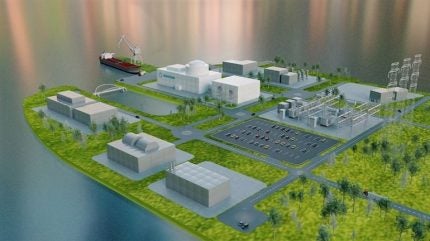
Novatron Fusion Group – the only private fusion energy company in the Nordic states – is preparing to build a pilot fusion reactor in the Nordic region during the 2030s. A new study conducted by VTT Technical Research Centre of Finland shows that Denmark, Finland, Norway and Sweden all meet the technical requirements to host the facility, but that Finland is the most prepared in terms of regulatory readiness.
Fusion energy has long been anticipated as a way of reducing dependence on fossil fuels while meeting the growing energy demand. Now, says NFG, fusion technology is moving closer to becoming a reality in the Nordics.

Discover B2B Marketing That Performs
Combine business intelligence and editorial excellence to reach engaged professionals across 36 leading media platforms.
NFG is developing a magnetic mirror fusion reactor concept, with the target of creating a commercially viable and cost-effective energy source. To create a solid foundation for informed decision-making, NFG commissioned VTT to evaluate potential locations for a pilot fusion reactor across the four Nordic countries. The report’s findings were presented at the Nordic Fusion Forum in Espoo, Finland, on 19 October. VTT’s analysis examined regulatory, environmental, operational and societal factors in each country to identify both challenges and opportunities relevant to fusion deployment.
“VTT has done an excellent job delivering a thorough report that provides us with a clear and actionable roadmap to move from concept to construction. Cross-border collaboration, legislative reforms and the development of fusion strategies will be key to accelerating a fusion ecosystem in the Nordic region,” said Peter Roos, CEO of Novatron Fusion Group.
Based on the study, the most promising regions for a pilot fusion reactor are:
- Helsinki metropolitan area in Finland’
- The area between Stockholm and Nyköping in Sweden;
- The Copenhagen-Malmö corridor spanning Denmark and Sweden.
The study identified ten secondary focus areas that represent all four countries, including the following:

US Tariffs are shifting - will you react or anticipate?
Don’t let policy changes catch you off guard. Stay proactive with real-time data and expert analysis.
By GlobalDataRegulatory readiness varies in the Nordics;
As an emerging technology, fusion energy must overcome certain regulatory hurdles. When comparing the regulatory environments in each country, the study found that Finnish legislation is the most advanced, followed closely by that of Sweden;
Finland is in the process of renewing its Nuclear Energy Act, which will streamline the licensing process and reduce barriers for pilot fusion sites. The changes are expected to become effective in 2027;
Countries with a dedicated fusion strategy and distinct legislation for fusion and fission are more attractive to developers, as these measures help reduce non-technical risks;
Sweden has an established nuclear legislation that explicitly includes fusion reactors. However, the regulation is still subject to comprehensive, fission-focused requirements. Denmark and Norway operate under older nuclear regulations with no specific mentions of fusion energy, resulting in some political and procedural uncertainty.
The next phase of the project will involve detailed, site-specific investigations in co-operation with interested Nordic stakeholders and industrial partners. This stage will refine potential sites based on land ownership, local engagement and technical feasibility.





